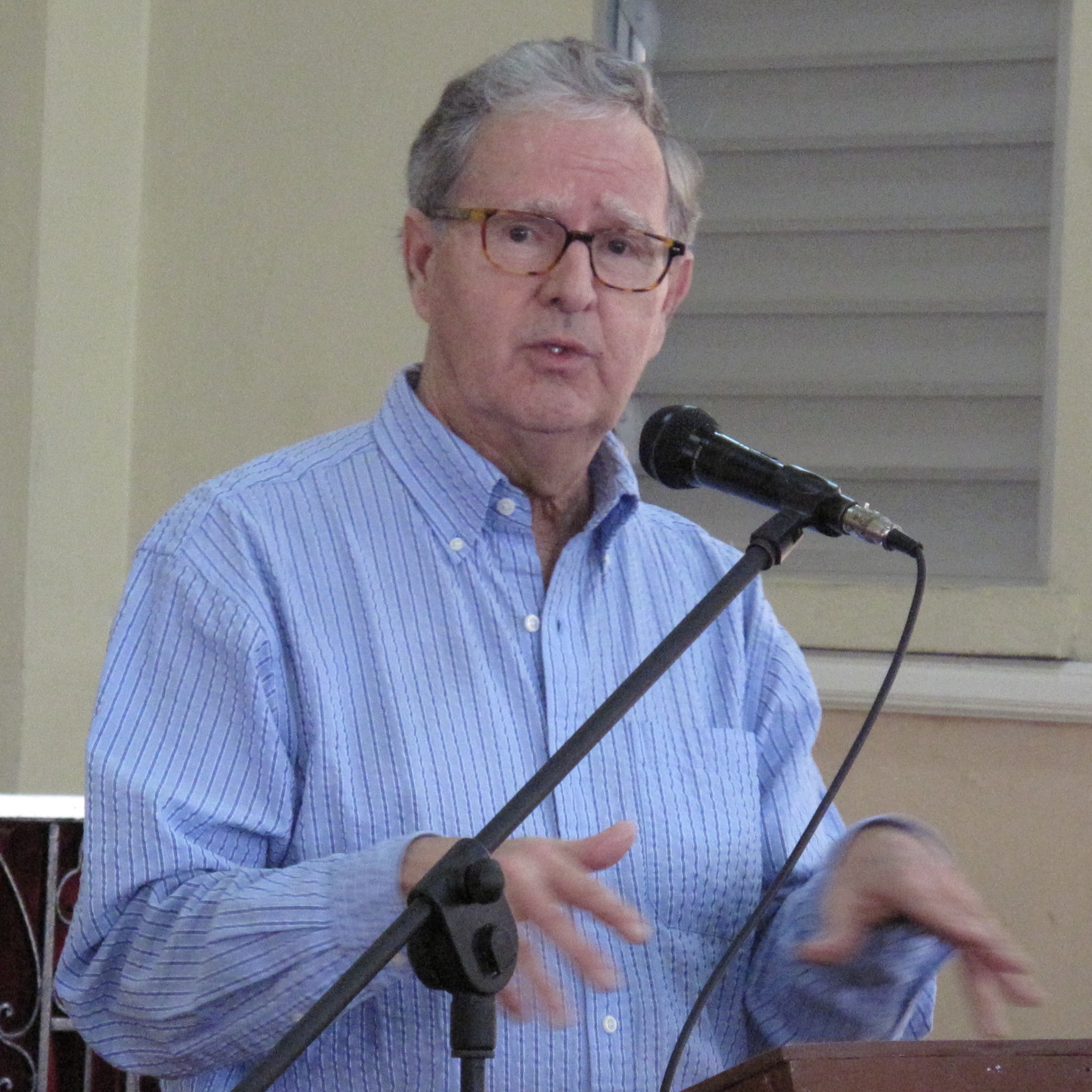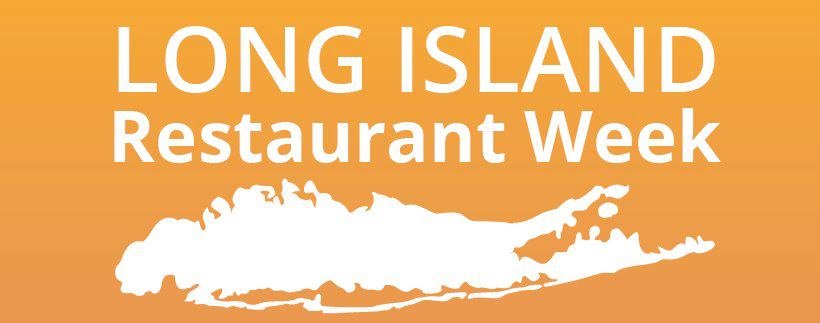Who's Here: Rev. Robert Stuart

“Providential” would be a good word to describe the personal and professional arc of Robert Stuart’ life. Not only does this retired, ordained Presbyterian minister continue to fulfill a sense of mission to serve, he looks back at the circumstances that have guided his course over the years—particularly his coming to The East End—and wonders, with a bit of amused contemplation, if coincidence might have been destiny.
Born in Minneapolis, Stuart moved around the Midwest growing up. He attended DePauw University, a small, prestigious liberal arts college in Southern Indiana and went on to get an M.A. in American History from the University of Wisconsin, then a center of liberal politics. Was he responding, perhaps, to a distant genetic call? Robert Beecher Stuart, it turns out, is a descendant of the brother of the great Presbyterian preacher (and East Hampton minister for 10 years), The Rev. Lyman Beecher, the father of Harriet (Uncle Tom’s Cabin) Beecher Stowe. Stuart’s Reconstruction Era thesis would certainly suggest he was following in the family line when, on a chance offer to assist a professor, he found himself exploring for his thesis the issue of education for freed slaves in regard to the 14th Amendment. It was that amendment’s Equal Protection Clause, of course, that became the basis of the Supreme Court’s 1954 landmark case, Brown v. Board of Education.
Advocacy of civil rights and promotion of human dignity have always been and continue to be at the center of Rev. Stuart’s work, though it was a critical move in his mid-50s that determined his shift from secular to spiritual in pursuit of a career. A conscientious objector during the draft, he did his service at the medical center of the University of Kansas, in Kansas City, specifically in the psychiatric ward. There, he found himself involved in counseling, an experience that prompted him to consider divinity school. Graduating from Princeton Theological Seminary, he was ordained in 1962, an event that also seems, in retrospect, inspired. Indeed, 2012 is a double-anniversary year for Rev. Stuart—marking the 50th anniversary of his graduating class at the seminary and 50 years as an ordained minister.
The road from Princeton to Amagansett, though less traveled by, would prove instructively divergent, providing Rev. Stuart with a wide—and deepening—perspective on the spiritual needs of the country. His first position, as minister of a Presbyterian church in Wheeling, West Virginia, lasted four years and was followed by a 15-year appointment in Ringwood, New Jersey, a borough of Passaic County. The mid-70s, however, presented challenges that became life-changing, personally and professionally. A divorce granted him custody of his son, Tom, and no doubt prompted a decision to travel cross country, a mode of inner reassessment much in the American grain. The two went backpacking in the Cascade Mountains in Washington State, where, with Tom, and a cat and dog, Rev. Stuart took on an interim ministry. The position was short-lived, though, and as he considered his next move, thinking of the many contacts he had made over the years back east, he remembered Linda Westerhoff whose family owned John Duck Restaurant and whose uncle, a minister, he had once assisted in Ringwood. Serendipity or . . .?
There was, he learned, an opening at the Presbyterian Church in Springs, though not full-time. There was also an opening in Amagansett. “Timing, timing, timing,” Rev. Stuart smiles, but then adds with a sobering sense of history that the 80’s also determined his pastoral direction as an AIDS counselor. “This was before drugs and when men, mostly men, were dying.” Early in 1985, he met with others in Southampton to institute counseling sessions for victims of AIDS, an initiative that would soon be merged into the larger Long Island Association for AIDS Care. But the impulse to do this kind of outreach work was strengthened by his acknowledging to himself, in 1985, and then to the church four years later, that he was gay. The church, he says, was supportive.
Though treatment for AIDS has dramatically changed with the refinement of various drugs, the “healing” idea took on new significance for Rev. Stuart who extended it to serving the homeless (Maureen’s Haven is a particular interest to him) and to anyone seeking spiritual comforting. He established a healing service in Amagansett, “something new,” and also introduced at Christ Church in Sag Harbor more intimate monthly one-on-one meditation and prayer sessions, replete with anointing heads with oil. In his retirement, Rev. Stuart has become an active member in this Episcopal church. And he became involved with Cuba, “a rich and rewarding experience” that continues to this day.
The Cuban partnership, a mission between Presbyterian churches and Cuban Presbyterian churches is nationwide, though the small group of 7-8 people who travel from The East End centers its activities in Guines, 30 miles southeast of Havana. Working with the U.S. Treasury Department, the group transports money to Cuba and also engages with the local population, visiting homes, institutions and clinics. “We learn, they learn.” Rev. Stuart speaks “some Spanish,” enough to make himself understood, and friendships are formed and reinforced by correspondence and visits to this country. All this in so-called retirement.
For the last six years, Rev. Stuart has been volunteering at Christ Episcopal Church in Sag Harbor, teaching a Wednesday evening Bible class, serving on the Vestry and chairing the Church’s Stewardship Committee (seeking financial support for each forthcoming year), and on Sundays assisting the priest on the altar as Eucharistic Minister. He also continues to maintain his association with the Amagansett Presbyterian Church, where he had been minister for 17 years. Though he had begun to spend more time on various volunteer efforts, he happened to stop in a few years ago at Christ Episcopal and liked the church so much that the chance visit turned into a more formal relationship. The Sag Harbor church reminded him of Amagansett’s with its small-size congregation and familial atmosphere, but he also fell in love with the church aesthetically, “the architecture, those stained glass windows.” He became a regular and constant presence.
As if community service were not enough, Rev. Stuart also tends to personal interests. For several years he sang with The Choral Society of the Hamptons (tenor), and for three of those years served as piano accompanist. DePauw’s website, by the way, notes that the university has “one of the nation’s first schools of music.” Nature and nurture will out: Though son Tom and his long-time partner Brian, whom he met at The New York Choral Society, wait tables in high-end restaurants, they also perform, giving annual recitals at The Montauk Library, Tom on piano.
Rev. Stuart also attends the Ashawagh Hall Writers’ Workshop. He’s now in his 29th year—“the only original member”—and though he’s been concentrating on fiction and nonfiction (including drafts of a memoir), he’s also had poetry published by Canio’s and Guestwords in The East Hampton Star. Much of his writing has to do with his “profession”—literally keeping the faith. We live in an “age of distraction,” without provision for spiritual space, “stressful times” that are felt especially by adolescents and young adults and by the unemployed and underclass “limited by social and/or financial constraints.” He would counter such anxiety by advising meditation in a “safe place,” urging people of any age to take a “time out” that might prove “healing and restorative,” or seek a “sacred” place for realizing order, communion with others or an Other, and finding inner peace. To which one can only say, Amen.



